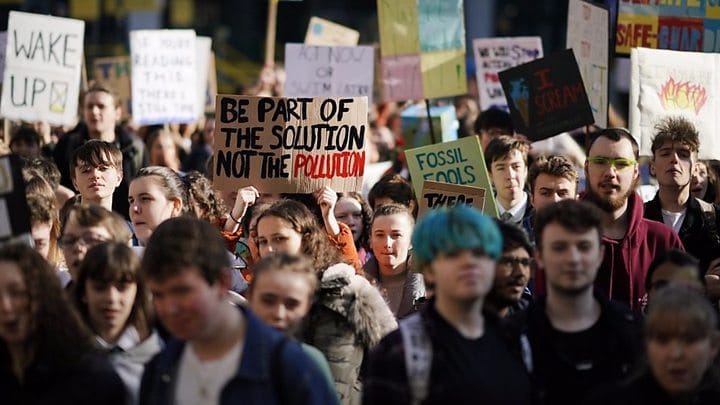
After an initial spark of interest in the climate change campaign, my passion for solving this crisis has grown. My attention was initially captured by the ‘classroom walk-out’ that took place across the whole of world where students missed a day of school to protest in order to raise awareness over this ever-growing issue.
As my interest developed, I began to look into areas that are particularly relevant to this problem, starting with the farming of animal products for human consumption. The statistics I found were completely shocking and have changed my view ever since.
I thought, even if we are a small community, at least I would have educated 800 more people about ways in which they can help the planet.
Livestock and their by-products account for at least 32,000 million tons of carbon dioxide per year, or 51% of all worldwide greenhouse gas emissions. It takes 2,400 gallons of water to produce one pound of meat and every six seconds an acre of rain forest is cut down for cattle farming. Animal agriculture alone is responsible for 18% of greenhouse gas emissions, more than the combined exhaust from all transportation.
However, I also read that cutting out meat and animal products from your diet can reduce an individual’s carbon footprint by 73%. For every burger skipped you can save enough water to drink for the next three years, wash your car 15 times and save enough energy to charge your iPhone for four and a half years.
The last three facts are what urged me to do something within my community. I thought, even if we are a small community compared to the rest of the world and even if the change we bring about is not record breaking, at least I would have educated 800 more people about ways in which they can help the planet.
After seeing campaigns for ‘Meat Free Monday’ across the internet I thought it would be the perfect opportunity to take it into my own hands and campaign for it at school. After one meeting and a short talk during assembly, my idea was really well received and we had our first ever meat free day just after the Easter holidays.
On just this one day, we reduced our CO2 emissions from food production alone by over 6,000kg.
Breakfast, lunch and dinner were all completely meat-free. The catering team did an amazing job, so much so that some pupils did not even notice because the food was just as good, if not better, than on other days. It made a lot of pupils and teachers really focus on the positive impact they were having on the planet and the damage caused by their consumption of meat.
From initial calculations, as a school community, on just this one day, we reduced our CO2 emissions from food production alone by over 6,000kg. To give a clearer idea, you would get this amount of CO2 from: driving an average car for almost 10 days non-stop; supplying the average house with all its energy requirements for over 170 days; or keeping a 13-watt CF lightbulb continuously lit for over 50 years.



